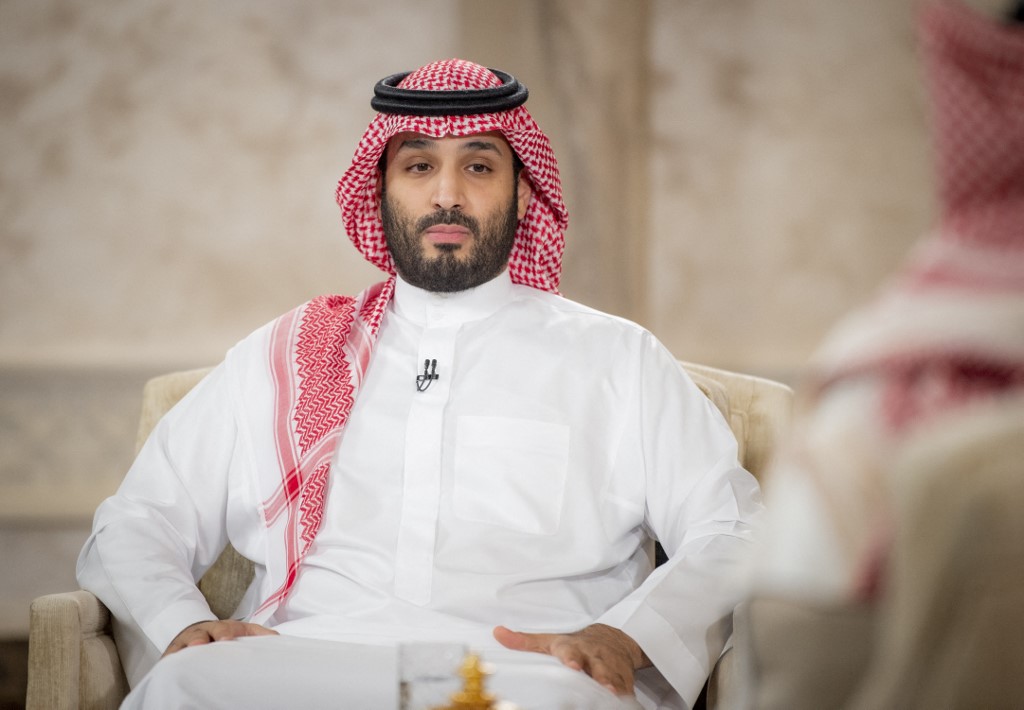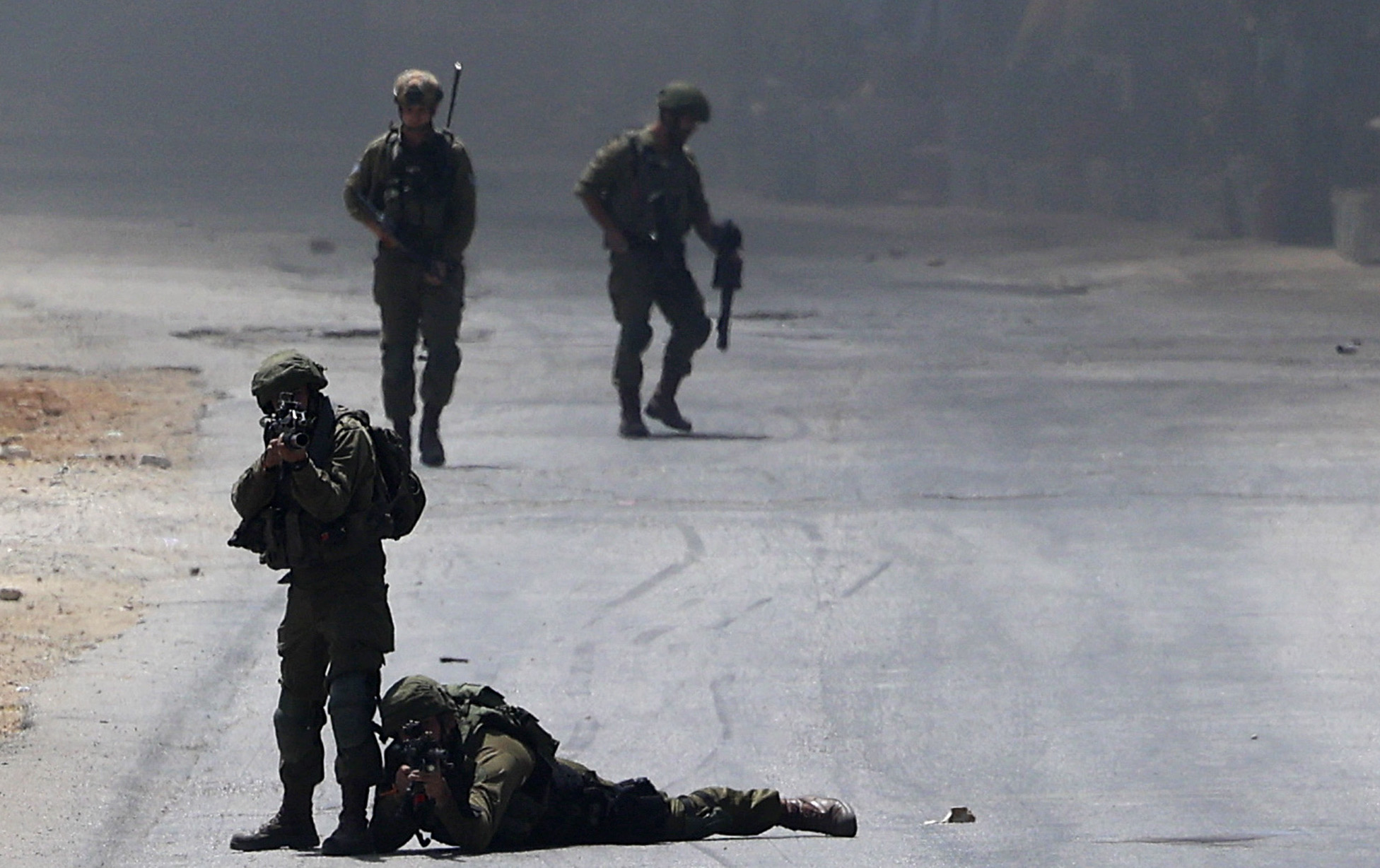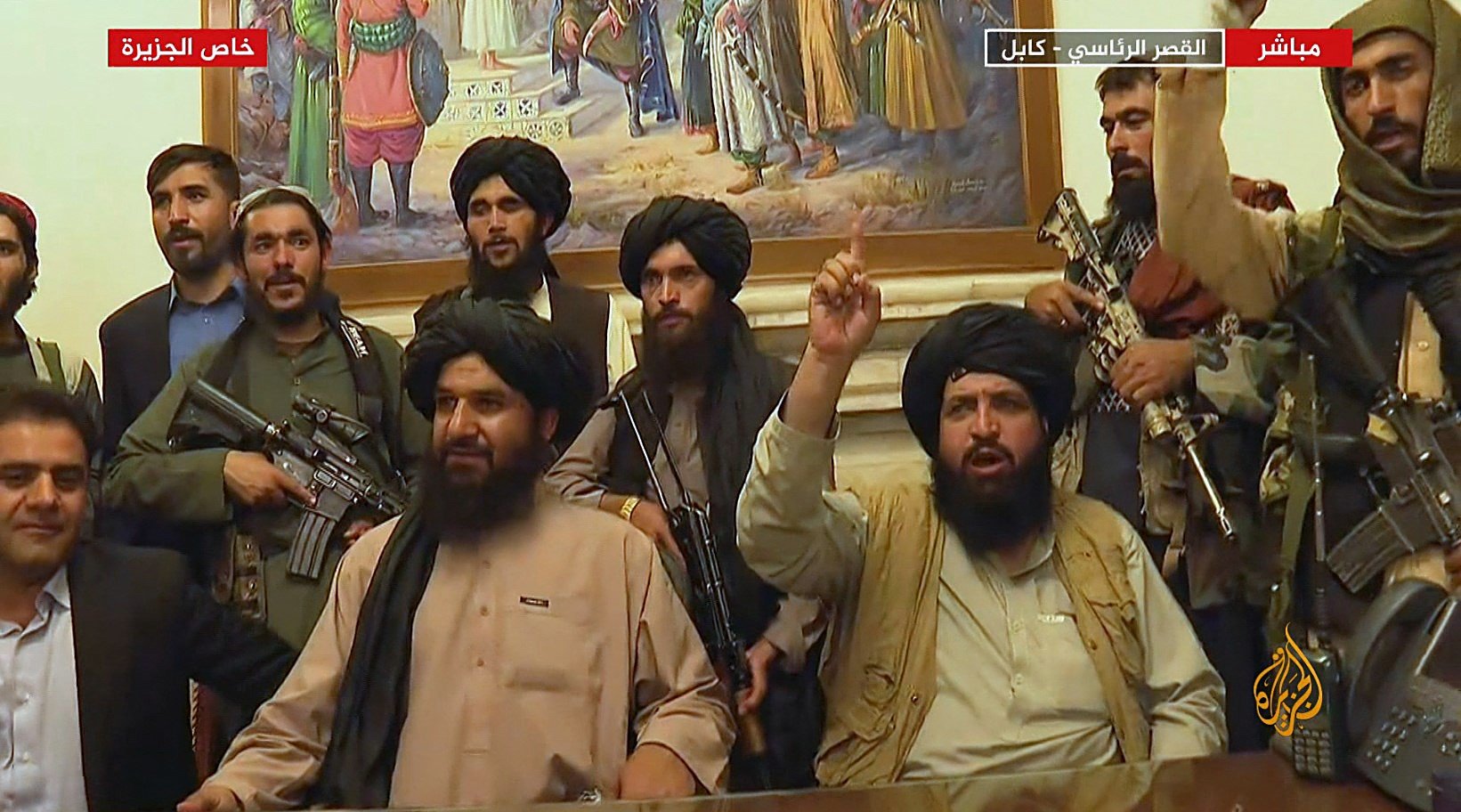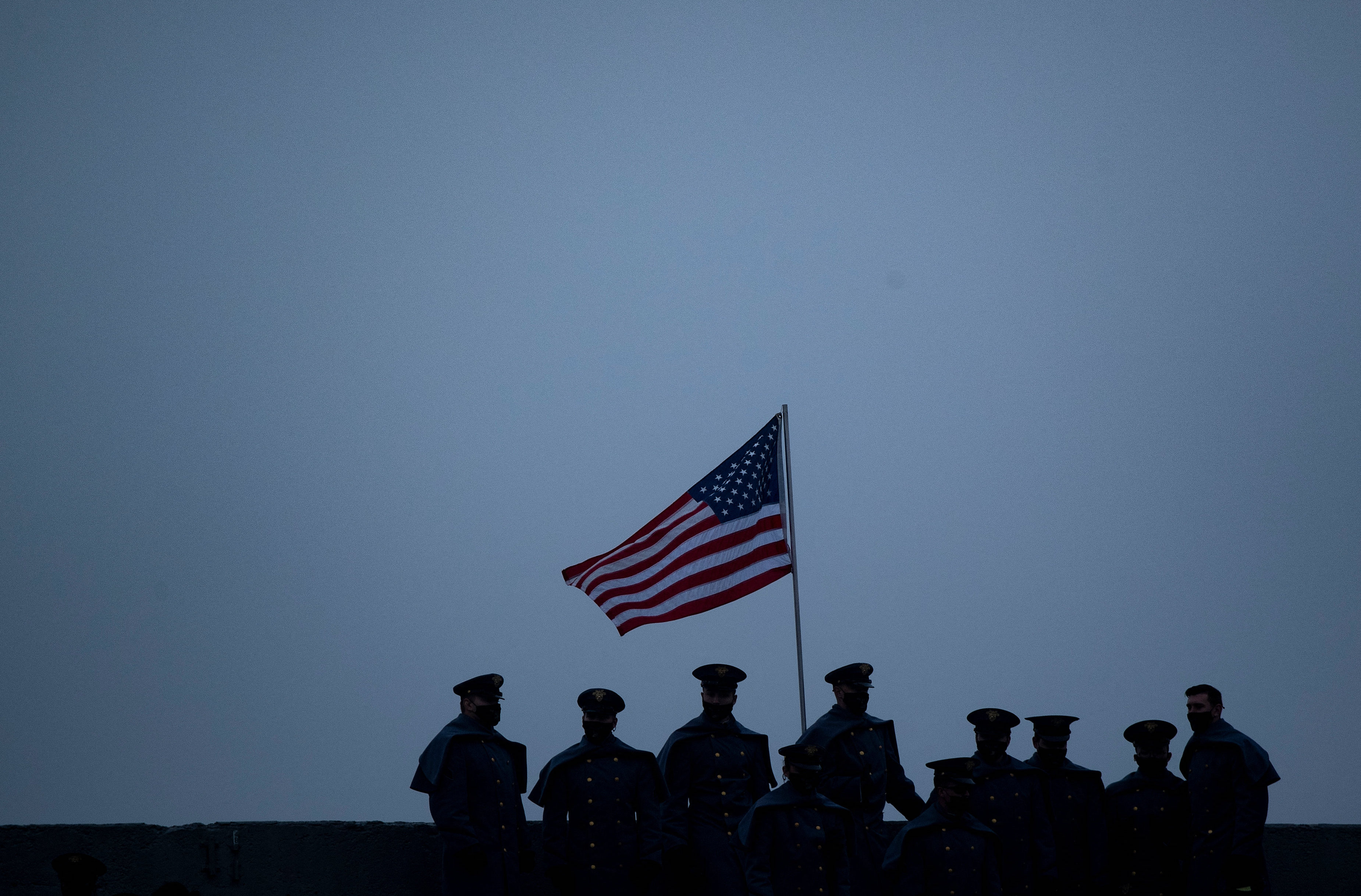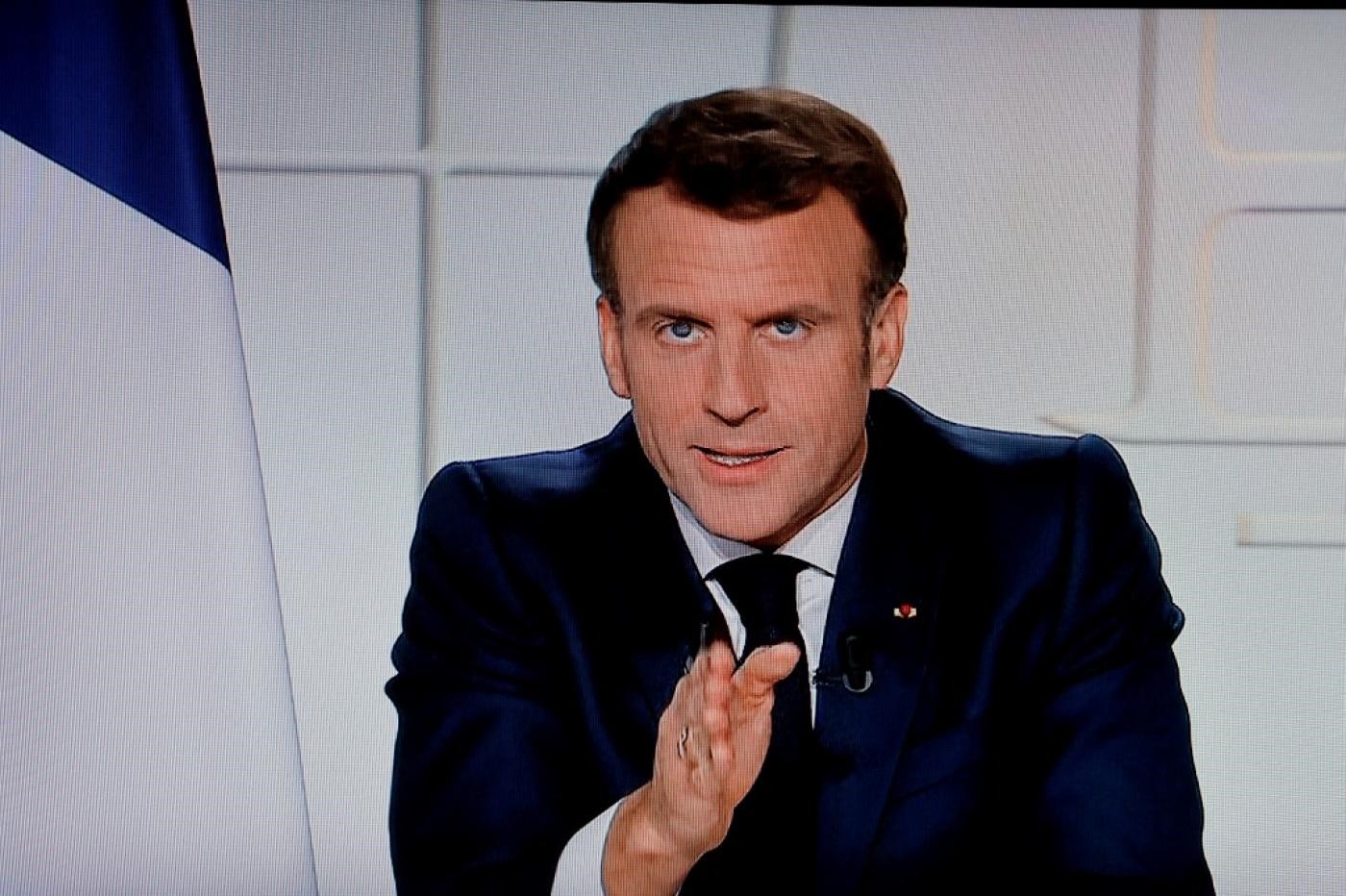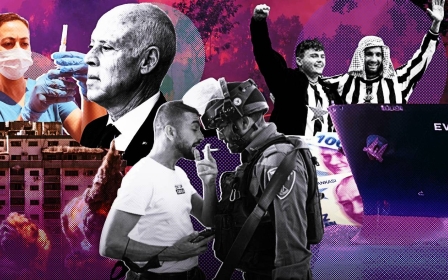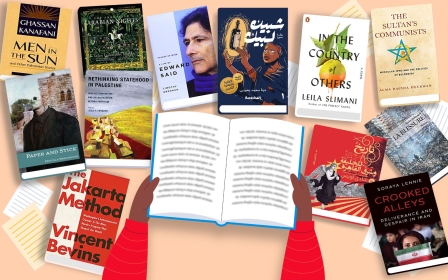What does 2022 hold for the Middle East and the world? All bets are off
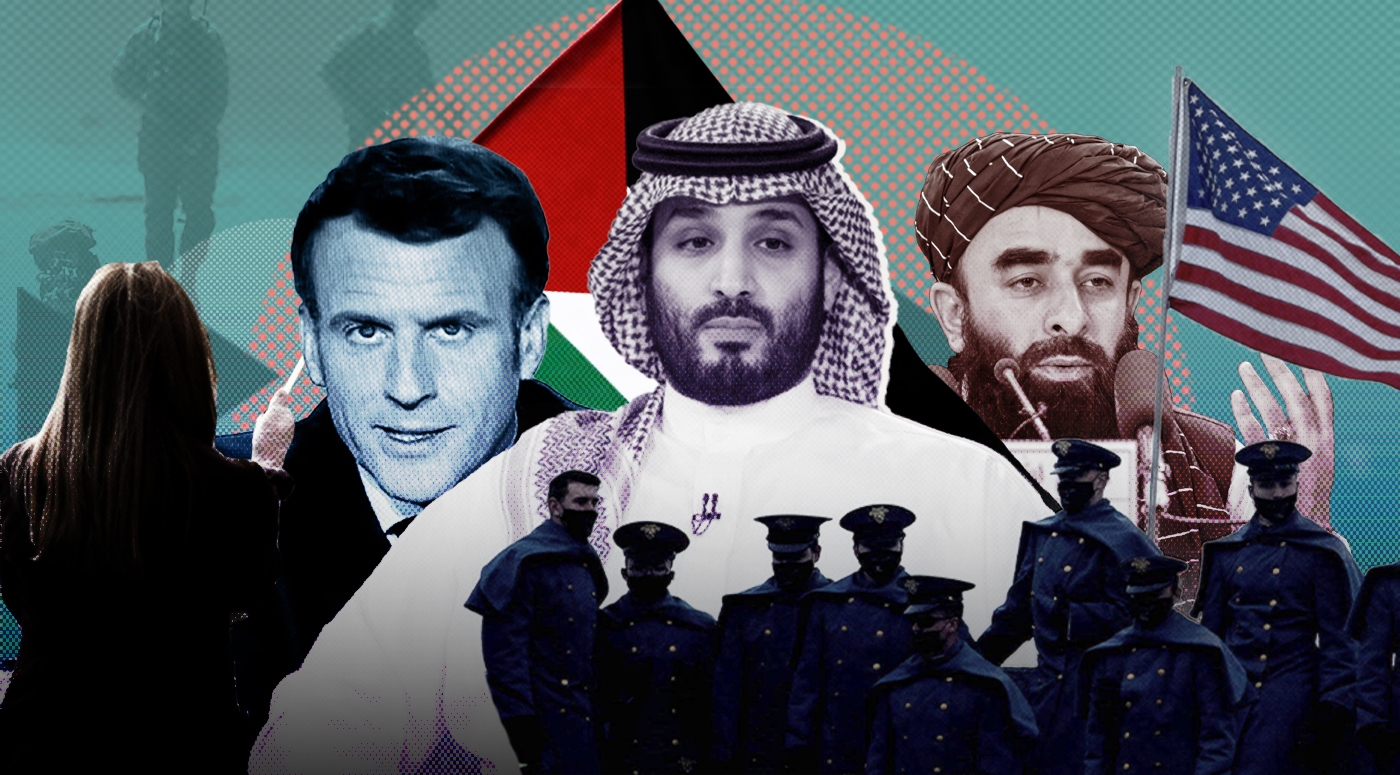
David Hearst | The End of the American century
As 2021 drew to a close, the chance of a global conflict involving real armies and real arms has never been higher and the tripwire to using weapons of mass destruction has never been strung tighter. Nor have all the world’s military powers been better armed, able, and willing to start their own inventions.
US President Joe Biden should bear this in mind. Washington would do well to look at the map of the world and think before it makes its next move. A long period of reflection is needed. Thus far it has obtained the dubious distinction of getting every conflict it has engaged in this century wrong.
After the damage done this century by conflicts ordered, created and backed by US presidents - Afghanistan, Iraq, Syria, Yemen, Libya - the US should get on with the urgent task of deconfliction
It is now in the United States' strategic interest to staunch any more bloodletting in the battlefields it created this century. That means the US should come to a deal with Iran by lifting the sanctions it has imposed on Tehran since the 2015 Joint Comprehensive Plan of Action.
If it wants to balance the growing Chinese and Russian influence in the Middle East, that is the surest way to do it.
New MEE newsletter: Jerusalem Dispatch
Sign up to get the latest insights and analysis on Israel-Palestine, alongside Turkey Unpacked and other MEE newsletters
Iran is not going to give up its missiles any more than Israel is going to ground its airforce. But a deal in Vienna could be a precursor to regional Gulf security negotiations. The Emiratis, Qataris, Omanis, and Kuwaitis are all ready for it. If Washington wants to apply rules, let it do so first with its allies who have so far enjoyed extraordinary impunity for their brutal actions.
If Washington is the champion of human rights it claims to be, start with Saudi Arabia or Egypt. If it is the enforcer of international law, let’s see Washington make Israel pay a price for its continued settlement policy, which makes a mockery of UN security council resolutions, and its own policy for a resolution to the Palestinian conflict.
Israel acts with a ruthless logic. It will use any opportunity to expand its borders until a Palestinian state becomes an impossibility. It probably has already succeeded in that aim.
However, this is not US policy. But this expansion continues, almost week in, week out, because no one in Washington will lift a finger to stop it. Doing nothing about armed lynch mobs of settlers attacking unarmed Palestinian villagers in the West Bank is the same as agreeing with them.
If you want to be a champion of rules, apply those rules to yourself first.
This is the only way to regain lost global authority. The US has entered a new era where it can no longer change regimes by force of arms or sanctions. It has discovered the uselessness of force. It should drop the stick and start handing out bucket loads of carrots. It should get on with the urgent task of deconfliction. After the damage done this century by conflicts ordered, created, and backed by US presidents - Afghanistan, Iraq, Syria, Yemen, Libya - that is not only a responsibility but a duty.
Another US strategic mistake would be its, and Western Europe's, last.
Read the full article here.
Madawi Al-Rasheed | Can MBS turn the page for Saudi Arabia in 2022?
In 2022, all of Saudi Arabia's international allies will encounter questions in their own countries should they attempt to fully turn the page on the Saudi Crown Prince Mohammed bin Salman's earlier intrigues and crimes. MBS may struggle to return Saudi Arabia to its previous glory when it was the first nation to which the international community turned to solve the many problems confronting the Arab world.
Mohammed bin Salman could sit and wait in Riyadh for the next US election, which may bring a friendlier president to the White House
The crown prince in Riyadh can count on both Russia and China to help rehabilitate him on the international scene - but they are no alternative to the old US-Saudi alliance.
Russia’s interest in Riyadh centres on oil and a growing, but minor, arms trade that cannot replace Washington’s role. Equally, China welcomes greater economic opportunities in Saudi Arabia, but it remains aloof politically and culturally.
MBS cannot suddenly pivot to the east, for many reasons. His military arsenal is western-based, and he still longs for a restoration of his country’s relations with the US that defined the Trump era. He could sit and wait in Riyadh for the next US election, which may bring a friendlier president to the White House.
MBS could also turn his attention to Britain and Europe, both of which are opportunistic and willing to accommodate the crown prince without allowing his abysmal human rights record to derail future arms deals. Britain maintains close ties with Riyadh, and the current Conservative government is not willing to undermine future opportunities in the name of upholding human rights. Britain will remain the second-largest supplier of arms to Saudi Arabia, as it has always been.
Yet the crown prince will continue to be a persona non grata in Washington, or in any other international platform where the US exerts influence.
MBS failed to turn up at recent G20 and COP26 meetings because he wasn’t guaranteed a handshake or photo opportunity next to Biden and other world leaders. The Saudi crown prince was also not granted the honour of helping the US during the summer crisis in Afghanistan, as its military forces withdrew.
However, this does not necessarily mean MBS will be snubbed forever.
The US continues to initiate selective engagement with Saudi Arabia and as 2021 came to a close, the US wants to ensure that Saudi oil continues to flow in abundant quantity, lest oil prices continue to rise, thus undermining western economic recovery after two years of disruption fuelled by Covid-19.
Richard Falk | Palestine: More traditional diplomacy, but no stability
To begin with, we will witness a growing awareness that traditional diplomacy will not bring stability, much less peace with justice, to this struggle, which has gone on for more than a century.
2022 is likely going to experience a much-delayed funeral that finally pronounces the death of Oslo diplomacy along with its reliance on direct negotiations between the two sides, and the US pretending to serve as a neutral intermediary, sometimes half ironically identified as an "honest broker".
It has been made clear - time and time again - that Israel's political leaders don’t want just a political compromise that leans in their favour. Israeli has long shrugged off pressures to comply with international law or to pretend support for a peace process guided from Washington.
Israel has - for some years - stopped pretending that it supports a diplomatically arranged solution.
The most encouraging development for the Palestinians is in the symbolic domain of politics. It is here where they are winning even in America
No foreseeable surge of Palestinian resistance poses much of a threat, especially as neighbouring Arab regimes have become distracted or detached from the conflict, with some previously hostile governments even displaying a willingness to join openly with Israel in confronting Iran.
This image of dead-end diplomacy is reinforced by the US posture post-Trump.
On the one side, the Biden presidency has signalled that it will not challenge Trump’s signature moves, including moving the US embassy to Jerusalem, confirming Israeli sovereignty over the Golan Heights, endorsing the Arab normalisation accords and even seeking their expansion, capped by reassurances to Israel that it will collaborate regionally, especially when it comes to Iran.
At the same time, Biden wants to appear to be taking a more moderate tone, which explains Washington’s renewal of public support for a two-state solution and mild rebukes when Israel uses excessive violence against Palestinian civilians or moves to expand Jewish settlements in the occupied West Bank.
I would suppose that even Biden realises that the two-state solution has long been a zombie fix that allows Israel to let the unresolved conflict with the Palestinians simmer indefinitely.
As matters now stand the Biden presidency is weak and unable to push forward his domestic agenda, which has disappointed the American public. Under these circumstances, the last thing he wants in 2022 is even the mildest break with Israel of the sort that occurred toward the end of the Obama presidency.
In my view, the most notable developments in 2022 will be prompted by growing disillusionment and disbelief that constructive action will follow from either the peace diplomacy of the past or new UN pressures. Palestinian resistance will continue to send signals to the world that the struggle goes on no matter how hard Israel works to show the world that it has prevailed in the struggle and that the best that the Palestinians can hope for is economic benefits to be bestowed following a political acceptance of Israel as a Jewish state along with a pledge not to oppose Zionist ambitions to conquer what remains of the "promised land".
In other words, the year ahead will likely announce to the world that Israel has opted for a one-state unilateral solution along with a Palestinian refusal to swallow such toxic Kool Aid.
Given this line of thinking, the most encouraging development for the Palestinians in the year ahead is likely to be in the symbolic domain of politics, and what I have previously called the "legitimacy war" dimension of political conflict.
It is here the Palestinians are winning even in America, especially among younger Jews, along with some signs that the bipartisan consensus in the US Congress is splintering, at least at the edges.
We all need to remind ourselves of three salient features of the present context: (1) the Palestinians are fighting an anti-colonial war against an apartheid government in Israel; (2) the major anti-colonial wars have been won, not by the stronger side militarily, but by the winner of the legitimacy war, as the US discovered in Vietnam, and more recently in Iraq and Afghanistan; (3) the Palestinians will be increasingly seen by the informed global public and media as winning the legitimacy war; this impression will be supported by continued fact-finding at the UN and further engagement by the ICC.
Tanya Goudsouzian | Another grim year for Afghanistan
The fall of Kabul and the Taliban’s return to power was arguably the most shocking news to emerge from 2021, conveyed with the same PR savvy that characterised the group’s ramped-up campaign to oust foreign troops from Afghanistan.
Images of Taliban members posing triumphantly behind an ornate wooden desk at the presidential palace will forever illustrate the day a guerrilla force overthrew an elected government backed by the strongest militaries in the world.
The image was a masterful stroke of propaganda and for the eagle-eyed observer, the painting behind the desk was no less symbolic. It depicts a mid-18th-century scene in which a large crowd looks on as a Sufi mystic crowns the kneeling Aḥmad Shah Durrani, an ethnic Pashtun tribesman who founded the modern Afghan state.
Afghans are caught between a rock and a hard place. Frozen international aid funds would help to alleviate the severe humanitarian crisis, but it would legitimise Taliban's rule
The reasons for the Taliban takeover continue to be fiercely debated. Why did the Afghan army, after 20 years of first-world military training, armed with modern weapons and aircraft, collapse in less than two months? How did the Taliban develop such tactical prowess? Why did the international community merely stand by and watch?
Then the final affront by US President Joe Biden. In his widely derided and tone-deaf remarks on 1 September, he cast blame on the Afghans themselves for their own misery, insulted the memory of fallen Afghan soldiers, and absolved his administration of any responsibility in the chaos of a bungled evacuation.
As the year ends, a grim new reality emerges in Afghanistan. Mass starvation, economic collapse, and brutal extrajudicial executions greet the new year. The myth of a modern and more progressive Taliban 2.0, peddled by Taliban’s own PR machine and amplified by the world’s most respected media outlets continues to be discredited by ground reports of repressive policies toward women, reprisal killings, and gross human rights violations.
Despite repeated assurances by erudite spokesmen such as Zabiullah Mujahid and the Doha-based Suhail Shaheen in the weeks after the takeover, the newly formed Taliban administration is anything but broad-based and inclusive. The international community, still reeling from scenes of a botched mass evacuation and grappling with an outpouring of refugees, fecklessly watches from afar, merely voicing “concerns”, proclaiming “conditions” and declaring that “the Taliban will be measured by actions, not words.”
Afghans are caught between a rock and a hard place. Frozen international aid funds would help to alleviate the severe humanitarian crisis, but would also legitimise the Taliban's rule. Some Afghans are calling to release the funds on humanitarian grounds, while others insist on using the funds as an incentive for the Taliban to yield on some of its repressive policies. In either case, funds will be siphoned off by the government or free up other government funds for questionable activities. It is certainly the case that humanitarian concerns are not at the top of Taliban's priorities.
2022 looms large for the Taliban. The fledgling government is grappling with unprecedented humanitarian and financial crises, international condemnation, some measure of popular backlash, and a terrorist threat to its power and control.
Read full article here.
Marco Carnelos | The year of post-post-Cold War
The VUCA acronym describes quite well the current state of the world: Volatile, Uncertain, Complex, and Ambiguous.
Producing a reliable forecast in such a situation would be, to say the least, risky. Concerning what to expect in 2022, predictably, the focus will be on the Covid-19 pandemic’s resilience, now buttressed by the highly transmissible Omicron variant, and on whether or not the world can get it under control; as well as its impact on the world economy and its recovery, both now haunted by two threatening words: inflation and stagflation.
Is the US-led liberal world order really dissolving? Are we entering in the post post-Cold War era? Is 2022 the year where all this new reality could deflagrate?
The pandemic, and its economic consequences, have been unprecedented, but in our humble view, there is a far more systemic and lasting event to watch in 2022: the apparent global assault on the liberal rules-based global order conceived and enforced by the United States since 1945.
The international system could really be approaching a tipping point, and, therefore, for the incoming year, the real focus should be on the answers to some critical questions: is the US-led liberal world order really dissolving? Are we entering into the post-post-Cold War era? Is 2022 the year when this new reality could materialise?
A perfect storm of three combined crises may accelerate such trends: Russia’s revanchist assertiveness on Ukraine, China’s rising impatience with Taiwan, and Iran coming closer to the nuclear threshold.
Never in the last decades has such an unsettling landscape emerged for the neoliberal world order. While diplomats are working to decrease tension, a real dilemma looms: will they be able to conceive credible and lasting solutions, or will they more modestly kick the can a bit further down the road?
Russia, China, and Iran clearly set their demands, labelled as red lines: Ukraine should not join NATO; sooner or later Taiwan must come back under China’s sovereignty; and Iran will curb its nuclear programme only if the US provides a real and lasting lifting of the sanctions imposed on them alongside guarantees that any new deal will not be disavowed again.
Discussing if these three demands are legitimate or not is ultimately irrelevant; it will not help in finding a solution. For the first time in the last three decades, non-western countries are dictating to the West some components of a security architecture.
Western democracies’ answer remains unclear. The Biden administration and its allies know that “the emerging global landscape is drawing to a close an era of American dominance following the Cold War”. The analysis is correct, less so the lessons drawn from it so far. The US-led Summit for Democracy was laudable, but it was based on a mistaken assumption, while framing the current international system - as Biden does – as an epic clash between autocracy and democracy is just an empty rhetorical gesture.
President Biden rightly claims that the current competition between the great powers must be managed for the sake of humankind and to better tackle the severe challenges it is facing. Nevertheless, if such a desirable result must be achieved, he should be ready to consider the other side’s demands; dismissing them by building upon the latter’s poor democratic credentials is a non-starter.
While in many ways the 21st century’s challenges seem centred on new topics such as climate change, data control, cyber security, 5G, A.I., and the quantum revolution, die-hard spheres of influence, typical of the 19th and 20th centuries, still appear alive and kicking.
The VUCA acronym has never appeared so appropriate.
Read the full article here.
Malia Bouattia | The year of big questions in France
The lead-up to the French elections has not exactly evoked a sense of hope for those seeking to elect a progressive government in April 2022. Whilst the electioneering arguably began the second that Emmanuel Macron was declared president, the last 12 months, in particular, have been a period of intensified racism and xenophobia from the president and his government, as they seek re-election.
The tactic of scapegoating the most vulnerable seems to be the only thing that all the credible presidential candidates and leading political parties agree on, from centre-right Macron to far-right Marine Le Pen and Eric Zemmour.
Beating Le Pen and Zemmour is certainly not the only problem ahead, when the likely outcome will be a re-election of Emmanuel Macron – on a considerably more anti-Muslim and anti-migrant ticket than five years ago
Migrants and Muslims have virtually become the only point of debate between those battling it out for the seat of power.
Whilst many across the far-right are preaching, Macron is actively already putting into practice their policies, having spent his term further criminalising migrants who attempt to enter France, closing down mosques and Muslim organisations, outlawing anti-racist networks, considerably reducing the number of visas accorded to North Africans, and strengthening the police state.
It is for this very reason that to turn the political tide – let alone defeat the parties that push forward these ideologies of hatred – the left needs to be united in organising against Islamophobia and xenophobia. There is really no way around it, and the last 25 years of steady right-wing drift have demonstrated it all too well.
While unions and the political left have been able to mobilise massive opposition to successive governments’ regressive economic policies, they have simultaneously allowed politicians to sidestep these questions in the political arena by whipping up racism instead. Worse, many on the left, even the far left, have even participated in the process of targeting Muslims and migrants.
So far Macron has managed to effectively evade accountability on big questions, like his failed economic policies, despite the fact that these have prompted resistance by huge social movements throughout his presidency, such as the gilets jaunes movement that was sparked by rising fuel prices, and mass strikes in response to his labour law reforms.
It is this political weakness that is pushing Macron further to the right – anything is better than having to confront his failures.
Either progressive forces will be able to take the fight to the political field, and challenge state-led racism, or it will remain isolated and unable to set the agenda. Left-wing presidential hopeful Jean-Luc Mélenchon, the candidate for La France Insoumise, clearly understood this back in 2012 when he called on the poor, black, Arab, and migrant-filled banlieues to join his electoral revolution. At the same time, however, he has failed to consistently challenge Islamophobia and French nationalism.
Whilst the task is daunting in a country that is famous for its distinct form of Islamophobia – unrestrained and zealous – it is nonetheless necessary.
Beating Le Pen and Zemmour is certainly not the only problem ahead when the likely outcome will be a re-election of Emmanuel Macron – on a considerably more anti-Muslim and anti-migrant ticket than five years ago.
However, building an alternative narrative throughout the electoral period will help shift the debate, inform people, engage the demoralised and apathetic, and – crucially – mobilise new generations of activists.
This will start building the necessary fire under Macron for the years to come, and send a warning to future leaders that they will need to reckon with stiff opposition on these issues in power.
The left in France shows that it can mobilise social movements and trade unions like very few others in Europe can. It is high time they started doing so not only to defend their incomes and labour rights, but also to fight for those most oppressed, exploited and discriminated against.
The views expressed in this article belong to the authors and do not necessarily reflect the editorial policy of Middle East Eye.
Middle East Eye delivers independent and unrivalled coverage and analysis of the Middle East, North Africa and beyond. To learn more about republishing this content and the associated fees, please fill out this form. More about MEE can be found here.



